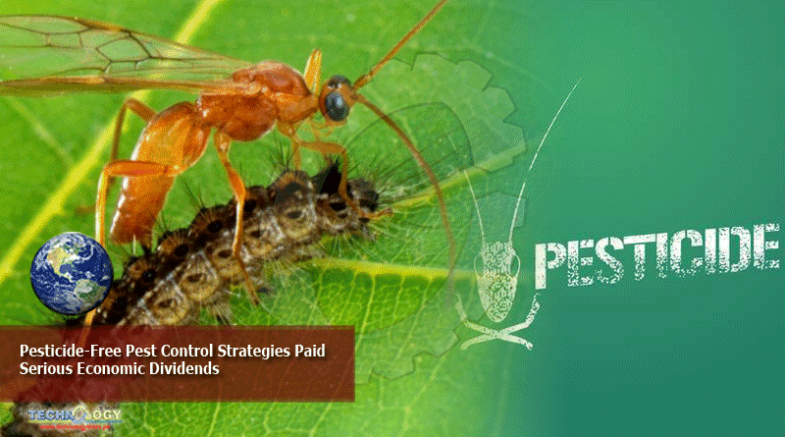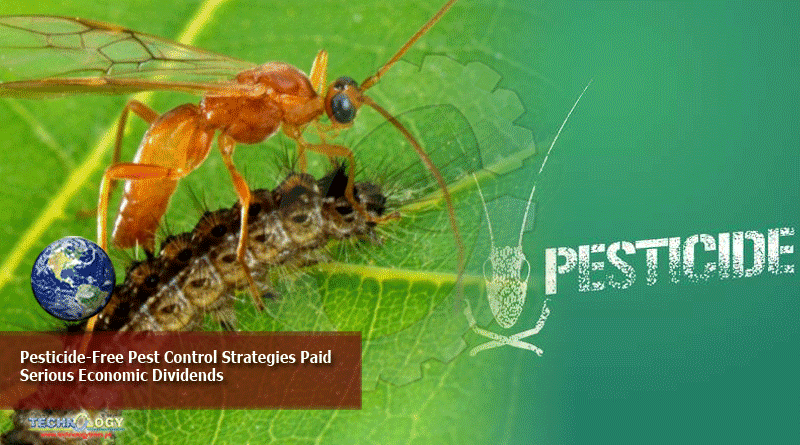Pesticide-Free Pest Control Strategies Paid Serious Economic Dividends Throughout The Asia-Pacific Region In The Last Century,

Yielding Annual Benefits Between $14.6 To $19.5 Billion Across 23 Countries.
According to the new research, detailed Monday in the journal Nature Ecology and Evolution, non-chemical crop protection has proven far more valuable than the development of high-yield grain varieties, often referred to as the Green Revolution.
For the study, scientists examined biological efforts for 43 exotic invertebrate pests across the Asia-Pacific. The surveyed control efforts were overwhelmingly successful, resulting in between 73 and 100 percent yield loss reductions across a range of crops, including banana, breadfruit, cassava and coconut.
“The Green Revolution is credited with alleviating famine, mitigating poverty and driving aggregate economic growth since the 1960s — enabled through a tripling of rice output,” lead study author Kris Wyckhuys, a Belgian bio-science engineer and insect ecologist, said in a news release.
The development of high-yielding, disease-resistant cereal varieties boosted agricultural production all over the world. Many studies have focused on the benefits provided by the Green Revolution.
“Our research is the first to gauge the financial benefit of using biological control to fight crop pests in the Asia-Pacific region and demonstrates how these ecologically-based approaches promoted rural growth and prosperity in marginal, poorly-endowed, non-rice environments,” Wyckhuys said.
According to the new study, biological control agents are not only healthier for the environment, avoiding many of the ecological damages associated with heavy pesticide use, they’re also cheap.Pest Control Strategies
“As many of the underlying programs were run on a shoestring, the rate of return on biological control science is extraordinary,” said co-author Michael Furlong, researcher with the Center for Agriculture and Bioscience International.
“Our work constitutes an empirical demonstration of how insect biological control helped solidify the agrarian foundation of several Asia-Pacific economies and, in doing so, places biological control on an equal footing with other biological innovations such as Green Revolution germplasm.”
This news was originally published at upi.com
